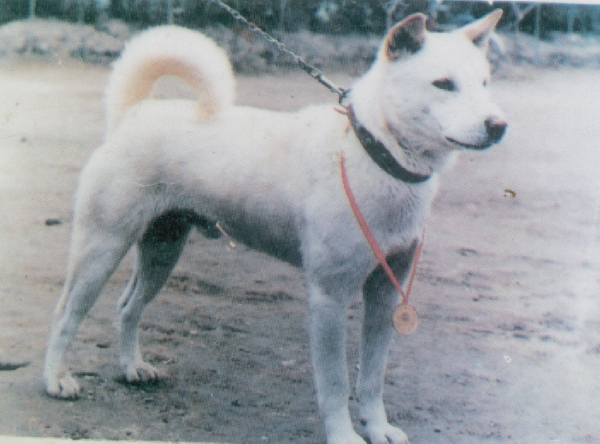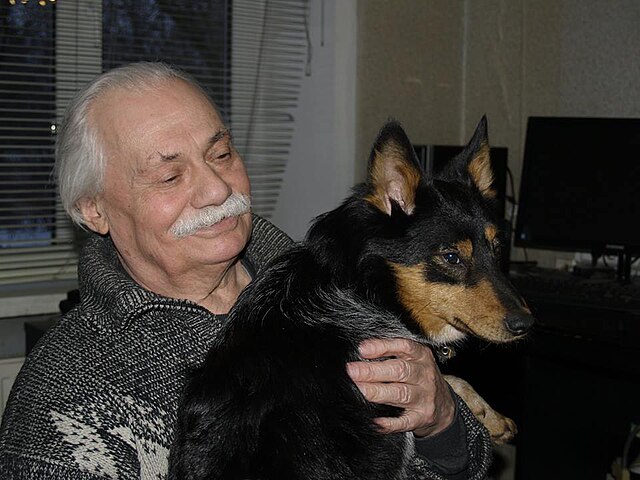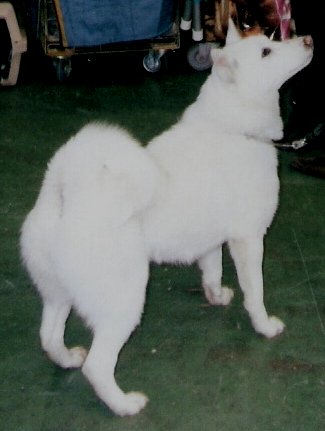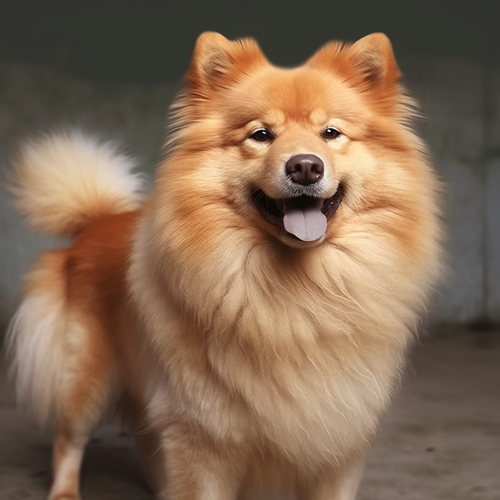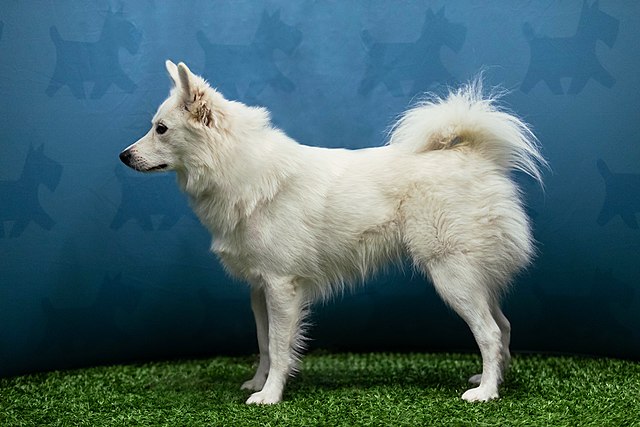The Korean Jindo Dog originated from Korea thousands of years ago. They developed naturally alongside humans and were known for their hunting abilities of boar, deer and smaller prey. Along with their sharp hunting instincts, they were also kept around for their protective instincts and abilities as companion dogs. This is a medium sized spitz-type breed that shares many of the same traits as other spitz dogs, including an aloof nature around strangers and a fondness for being clean. They are also fairly quiet in the home and will usually only bark if someone comes to the door. In Korea, they are considered a National Treasure.
The Jindo can be a territorial creature and may try to escape his yard in order to “expand his territory”. He is also naturally protective and quick to defend the home if he feels he needs to (sometimes a bit too quickly). Responsible owners should have secure fencing in place before acquiring this breed. In the home, he tends to housebreak quickly and is an unassuming/calm/clean house dog – particularly when he is the only dog. Many members of the breed have same-sex aggression issues as well as being iffy toward other dominant dogs in the household, so some owners find it easier to only have own Jindo at a time. When out and about, the dog may be less territorial/aggressive toward strange dogs as long as they keep their distance and remain polite.
The Jindo develops a strong bond with his owner, to the extent that if he needs to be re-homed it can be difficult. This bond may extend to animal members of the family as well… but many prefer humans over other pets due to their selective nature toward other dogs and high prey drives toward small animals (cats are ok with some dogs and a no-go with others). He can be untrusting towards strangers as well, even being difficult to board or having a pet sitter come over – so it is highly recommended that he be socialized early so family vacations without the dog can happen smoothly!
Jindos aren’t the most reliable of breeds to train for obedience due to their highly independent natures, however they can learn quickly as long as they like the trainer. Learning a command and performing a command reliably are two very different animals however… an owner or trainer must put in a lot of time, working the dog under distractions to increase reliability. This intelligent breed is very in-tune with hierarchy of “the pack” (ie – your family) and will claim top position if nobody else does. Obedience training is a big part of taking control of that situation so that the dog does not. Take note that the Jindo is an excellent problem solver and can be trained easily to learn dog puzzles and other canine games!
The Jindo is a double-coated breed and as such, does shed twice a year. Aside from that, the coat tends to repel dirt and is generally not smelly, so overall doesn’t require a ton of care other than a weekly brushing and occasional bath (although shedding season will require a bit more of both). In addition, Jindos enjoy being around their people and will follow them from room to room without getting too underfoot/in the way. They tend to be very polite and watchful little shadows who rarely get into things they shouldn’t (counter surfing, trash-raiding or other destructive endeavors). They are easy keepers when their needs have been met!
Jindos can do OK in an apartment setting as long as they are given plenty of exercise. This said, although the breed is normally quiet, they are more likely to bark when they hear or see other people – which is often more of an issue in an apartment. This could potentially cause problems in a busy, bustling apartment building. The exercise the breed requires in a house setting can be above average for this high energy dog, so be prepared to put in even more work if you live in a small apartment or condo! Ideally the Jindo is taken out several times a day for long walks and/or other physical activities. Members of the breed have gotten involved activities ranging from conformation, temperament testing, canine good citizen, coursing, barn hunt and agility… and some have even joined sled dog teams! They are excited to be given jobs which exercise both their minds and bodies.
When raised around children, the Jindo can get along fine with them as long as the kids have been taught how to behave. Remember that this is a bold breed that will put someone in place who they feel is being rude – kids included. This is not to say the breed is needlessly aggressive but they will stick up for themselves if they feel they need to! While most don’t have the typical friendly temperament of a Lab or similar breed, they can learn to live with and even bond with a polite child. Some don’t like strange kids, however and may take issue when a new kid comes over to play. Prospective owners must fully evaluate their lifestyle in order to decide if this is the breed for them.
